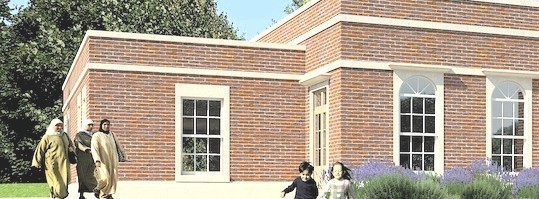 Issue No: 249
Issue No: 249
30th October 2015
16th Muharram 1437 A.H.
Salamun alaykum,
Trick or treat? It’s tomorrow:
In various Super stores and shops on the High street one can’t fail to notice the piles of round, bright orange pumpkins displayed for sale. There are special areas set up with dim lighting where various items such as clothes, skeletons, lanterns, black cats, bats, brooms, witches costumes, all in dark orange or black colours are stocked. For tomorrow is 31st October. It’s Halloween!
Do we celebrate Halloween?
In response to this question one needs to understand the history of this celebration. Among ancient Pagans of the British Isles, such as the Gaelics, a celebration to mark the beginning of winter was held on 31st October. On this day it was believed that supernatural forces gathered together, barriers between human and supernatural world were broken. They believed that Spirits, souls of the dead visit the earth and roam around. On the eve of this day a festival for the sun god- Samhain- and lord of the dead was held. The sun was thanked for the harvest and given moral support for the upcoming "battle" with winter. In ancient times, the pagans made sacrifices of animals and crops in order to please the gods.
Origin of the name:
When Christianity came to the British Isles, the church tried to take attention away from the pagan ritual of celebrating festival for the sun god by placing a Christian holiday - the Feast of All Saints - on the same day. The term Halloween is Scottish shortening of ‘Allhallow-even’ meaning "Eve of All Saints” or the night before All Saints Day.
Change of Date:
Initially the Feast of all Saints was observed by the church on May13th. Later, Pope Gregory III and IV supplanted the sun god festival with Christian holy day of All Saints day by moving the All Hallows evening from May 13th to November1st where mass is held on the preceding evening on October 31st.
Customs and traditions:
The custom or traditions of Halloween included donning costumes of devils, witches, skeletons, set up lanterns to drive off the evil spirits and demons. Images of bats, black cats, witches were displayed. These animals were believed to communicate with the spirits of the dead. People dressed in costumes would call on their neighbours for treats (trick or treat). Often they would play tricks on their neighbours. Blame for the resulting chaos was placed on the "spirits”. Other traditions included communication with the spirits of dead, divination/foretelling.
Thus it can be seen that all Halloween traditions are based on ancient pagan culture or traditions that do not hold in Islam. As Muslims, our celebrations should be ones that honor and uphold our faith and beliefs. How can we worship only Allah, the Creator, if we participate in activities that are based in pagan rituals and the spirit world?
Having fun?
Our children see their friends dressed up for Halloween and get tempted to join in. Many people participate in these celebrations without even understanding its history and the pagan connections. It’s done just because their friends are doing it. We must be careful to preserve our own traditions and not allow ourselves, especially our children, to be corrupted by this seemingly "innocent" fun.
Let us save the celebrations, the fun and games for our festivals on the Islamic calendar. Holidays for muslims are not excuses to indulge in reckless, meaningless activities. In Islam our holidays, such as Eid ul Fitr and Eid ul Adhha, while allowing fun, games, rejoicing, celebrations etc, they do retain their religious importance.
Let us make an informed decision for the best upbringing of our children as awladus salih - virtuous - and muminin.
Wa ma tawfiqi illa billah
Fazle Abbas Datoo
This email address is being protected from spambots. You need JavaScript enabled to view it.
Resident Alim
Wessex Shia Ithna Asheri Jamaat
